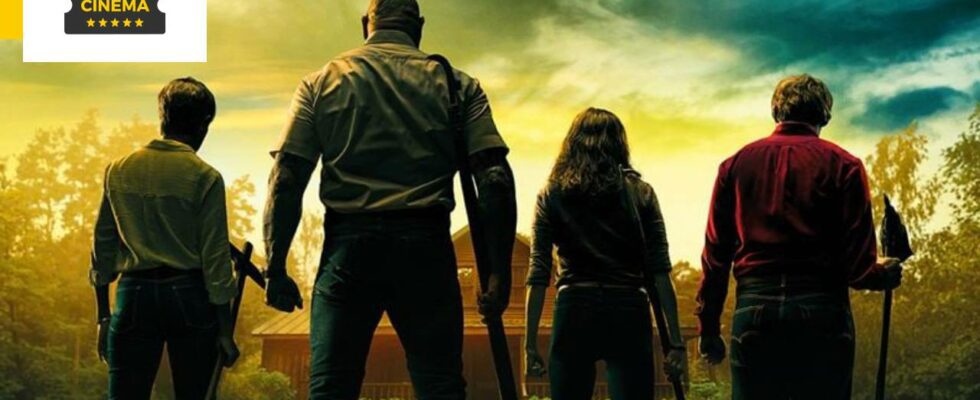In theaters since Wednesday, “Knock at the Cabin” is M. Night Shyamalan’s new movie. This camera confronts a family with four individuals convinced that the apocalypse is about to take place.
Knock at the Cabin by M. Night Shyamalan
With Jonathan Groff (II), Ben Aldridge, Dave Bautista…
What is it about ? While spending their vacation in a chalet surrounded by nature, a young girl and her parents are taken hostage by four armed strangers who force them to make an impossible choice. If they refuse, the apocalypse is inevitable. Almost cut off from the world, the girl’s parents must make their decision before it’s too late…
Shyamalan, from producer to director
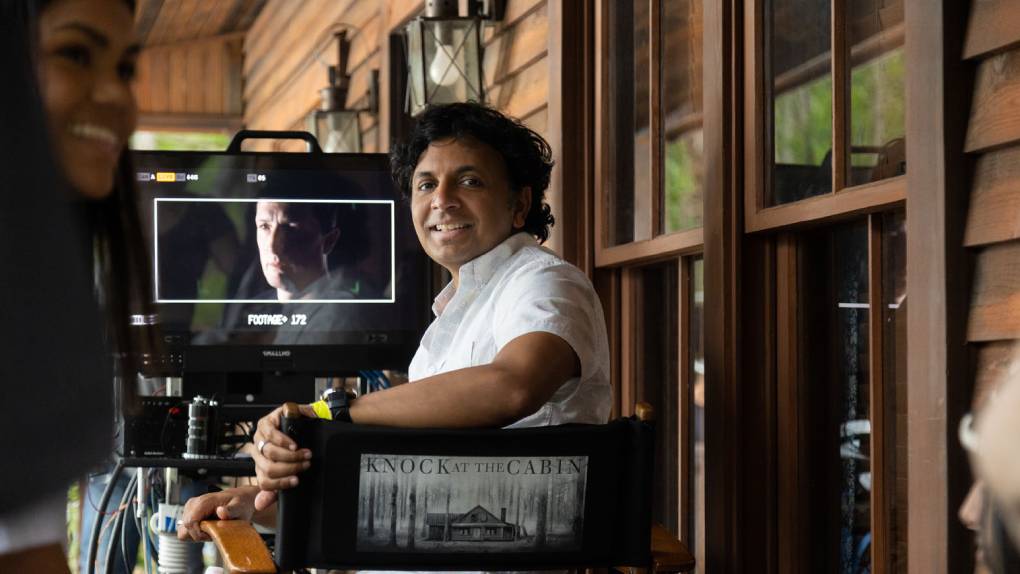
Universal Studios
The screenplay by Steve Desmond and Michael Sherman ended up on the famous Blacklist in 2019, listing the best scripts of the year without a producer. Initially, Blinding Edge Pictures, M. Night Shyamalan’s company, only planned to produce the film, but the script was so strong that the filmmaker wanted to offer his own interpretation.
“One day during a meeting he said ‘what if I rewrote the script and directed it myself?’“, remembers the producer Ashwin Rajan, president of the production department at Blinding Edge. A few young directors had been considered to direct Knock at the Cabin, but they ended up dropping out due to scheduling issues, leaving Shyamalan the opportunity to tackle it.
The representation of a homosexual couple on screen
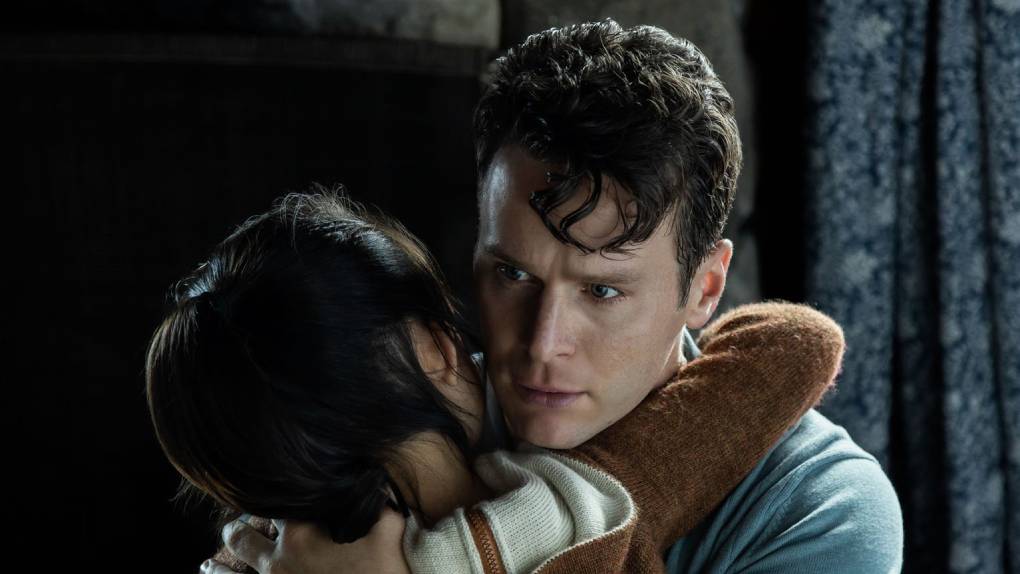
Universal Studios
Jonathan Groff and Ben Aldridge form a homosexual couple on screen. The two actors are themselves homosexual and are delighted to see the representation of a gay couple in the cinema in a Hollywood horror film, directed by a filmmaker as recognized as M. Night Shyamalan.
Groff says: “It wouldn’t have been possible fifteen years ago. It’s a great opportunity to be yourself in a movie – in a horror movie that’s both funny and interesting – when you’re gay in life. and that we can therefore embody a character with the same sexual identity on screen. Today, in 2022, the situation has evolved and we benefit from the progress made by previous generations.
His on-screen partner adds: “I believe that representation is of great importance from all points of view. It is important to feel represented on screen in a film that you choose to see. Cinema allows you to discover things about yourself and on people very different from us, elsewhere in the world. I believe that representation has this capacity to change the world in a very positive way”.
The cottage
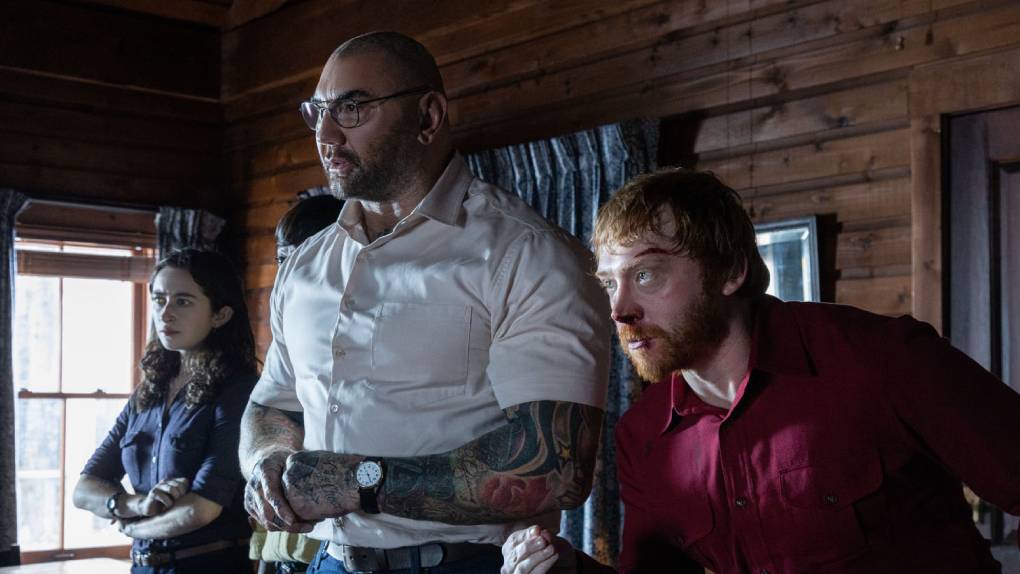
Universal Studios
Production designer Naaman Marshall and his team built a life-size cabin on a lingonberry farm in the Pine Barrens Forest in Tabernacle, New Jersey. The team had to draw up architectural plans for the chalet, then have them validated by an architect and an engineer as if the chalet was supposed to remain in place permanently. In addition, due to the municipality’s stringent chain of approvals, the team had a very tight construction deadline: the entire chalet was built in three weeks.
This chalet was used for the exterior shots and a second one, in a studio, was built for the interior shots. To get closer to the natural light on the set, a study of the luminosity was carried out in the chalet located in natural settings: it was a question of photographing each exterior view, from the windows or the door of the chalet. These photos were also used to compose the blue backgrounds that were later installed on the set to simulate the exterior views from the entrance window and the side windows.
A contemporary biblical account
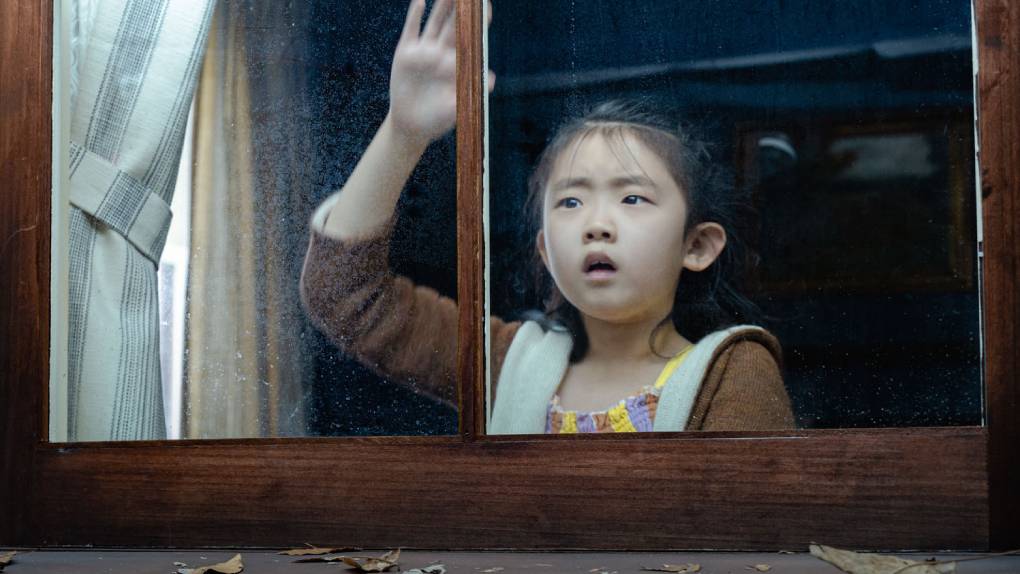
Universal Studios
Knock at the Cabin explores ideas related to faith and beliefs, certainties and doubt. M. Night Shyamalan describes the film as “a contemporary biblical account” : “I like the opportunity to tell large-scale biblical stories, but set in the present day and in a contemporary context. The film echoes my view of the world, which is not going well, but I I have the feeling that we are collectively fighting to move in the right direction.”
Despite the starting premise of his film, the director is optimistic about his vision of humanity: “I’m able to make very dark films because I have a lot of affection for people and I have a very positive view of the world. I’m able to see what’s positive in all things, including the most negative, because I have a deeply optimistic approach to life”.
